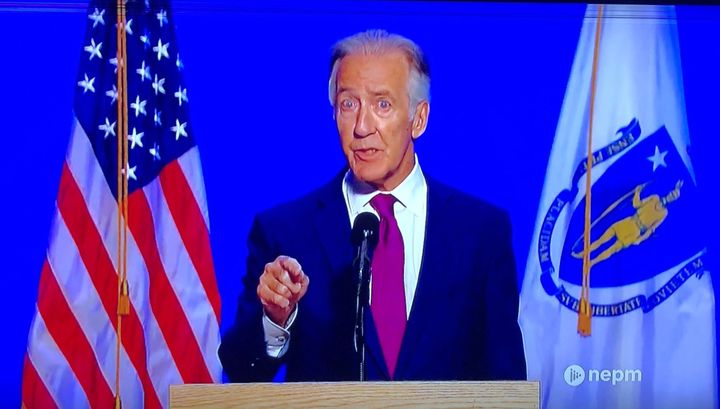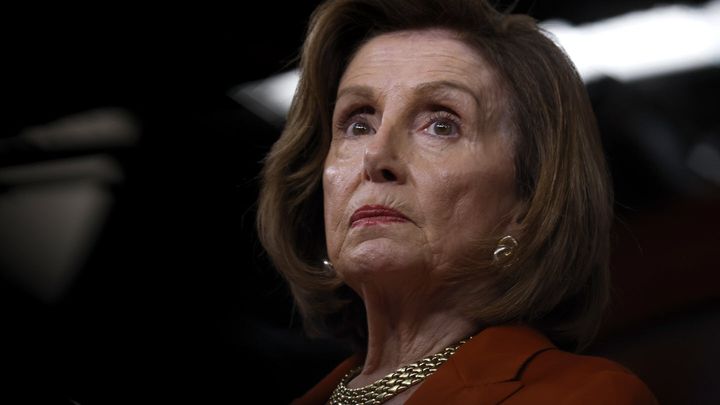Throughout his campaign against primary challenger Holyoke Mayor Alex Morse, Rep. Richard Neal (D-Mass.) has tried to make sure voters know he wrote the CARES Act that directed millions to local hospitals that are among the largest employers in his Western Mass district.
“This infusion of federal funds will help providers stay afloat during the unprecedented coronavirus emergency and get the resources they need to keep frontline health care workers safe,” Neal told MassLive in April. “I’m proud to have been an author of the CARES Act.”
The CARES Act included a $100 billion for the Public Health and Social Services Emergency Fund to reimburse hospitals for coronavirus-care related expenses and lost revenue. It gave the Trump administration broad discretion over how to administer the funding.
Without any provisions in the act about how the funding must be used, the hospital bailout was not allocated to support the pay of front-line medical workers.
According to internal communications from Baystate Health hospital reviewed by Sludge, executives pushed division leaders to have workers take “voluntary” unpaid furloughs or use their accrued time off in order to help the hospital.
“Every division is asked to use a combination of temporary voluntary unpaid furlough, temporary hours reduction and mandatory use of PTO to adjust to volume and workload for all FTE’s for three months commencing June 1,” Joel Vengco, senior vice president and chief information officer, wrote in an email to staff. The email also said that special pay programs including “supplemental pay, critical shift pay, and paid furloughs,” would be suspended indefinitely.
Baystate received $32.1 million from the Public Health and Social Services Emergency Fund.
Ron Patenaude, a representative of the Massachusetts Nurses Association (MNA), which has endorsed Morse, criticized hospital executives for not doing more to help workers.
“[The executives] didn’t want to pay people not to work, but they got paid not to do shit,” Patenaude said. “They got paid for the income they ‘lost’ because they didn’t do surgeries. So here they are getting paid for not providing services—getting bailed out—and then they’re saying we’re not going to pay people to keep them on.”
The hospital industry, which has been among Neal’s top supporters, applauded the hospital bailout funds in the CARES Act. Hospital lobbying groups like the Massachusetts Hospital Association and the Federation of American Hospitals have been consistent donors to Neal through their PACs, and the American Hospital Association has spent nearly $500,000 on ads backing Neal’s re-election this cycle.
Sludge’s review of campaign finance records found that on March 25, the day that the final version of the CARES Act was agreed to by congressional leaders, Neal received donations from two executives of Springfield, Massachusetts-based Baystate Health. President and Senior VP Nancy Shendell-Falik gave $500, while President and CEO Mark Keroack chipped in $1,000.
Neal has received $24,550 from executives and other employees of Baystate Health since 2010, according to Sludge’s review of Federal Election Commission filings.
At other area hospitals that received money through the CARES Act, including two that are run by Michigan-based Trinity Health, workers say they have been forced to use their accrued paid time off.
“Nurses are being told by Trinity management that they have to use their own time off, unless they are kept out by Trinity’s occupational health department,” the MNA wrote in an April press statement. “Trinity has threatened to fire staff who do not comply with its terms during this crisis, deny unemployment and refuse to allow nurses to use paid time off.”
Trinity’s Mercy Mercy Medical Center in Springfield received $5.7 million from the CARES Act.
At Baystate, workers were informed that employees who refuse to be reassigned to another division deemed appropriate by management would be corrective action “up to and including termination of employment,” according to documents reviewed by Sludge.
Read more from Sludge:
Neal Sends Cease and Desist Letter Over Ad Highlighting His Corporate PAC Donors
Hospital Lobby Shells Out For Its ‘Friend in Washington’ Richie Neal
Dems’ Health Insurer Bailout Follows Bundled Checks from the Industry’s Lobbyists



